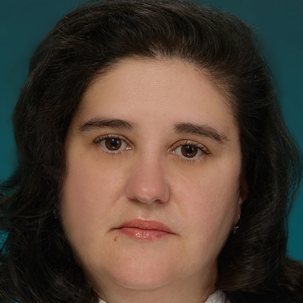
Andrijana Bocevska
Work place: “St. Kliment Ohridski” University – Bitola Faculty of information and communication technologies, Bitola, R. Macedonia
E-mail: andrijana.bocevska@fikt.edu.mk
Website:
Research Interests: Software Construction, Computer Architecture and Organization, Solid Modeling
Biography
Andrijana Bocevska is an Associate Professor at the Faculty of Information and Communication Technologies, “St. Kliment Ohridski” University – Bitola, R. Macedonia. She received her MSc and PhD degrees in Mechanical Engineering in December, 2001 and October, 2012, respectively. Her research includes areas: Integrated computational methods and applications, Computer integrated manufacturing, Product engineering, technology and systems. Dr. Andrijana Bocevska has published 6 books and more than 30 research articles published in international journals, conferences and congresses and she has participated in several EU and domestic funded projects. Dr. Andrijana Bocevska currently teaches subjects in: Application software, Solid modeling, Computer integrated manufacturing, Scientific visualization in virtual environments, Product Lifecycle Management.
Author Articles
On the Technologies and Systems for Student Attendance Tracking
By Zoran Kotevski Natasa Blazheska-Tabakovska Andrijana Bocevska Tome Dimovski
DOI: https://doi.org/10.5815/ijitcs.2018.10.06, Pub. Date: 8 Oct. 2018
Manual student attendance tracking, by calling student names from a check list or taking students’ signs on a paper, has gone into history. Nowadays, modern technologies have already enabled the development of various automatized attendance tracking systems. These technologies include: Radio-Frequency Identification (RFID), Biometric (fingerprint, face or voice recognition), Barcode identification and Bluetooth communication technologies, that are implemented over an IP infrastructure as a platform. But, all these technologies perform in a different manner and exhibit certain functional limitations considering the given implementation. The main motivation for this research was to explore the possibilities for overcoming the issues of current systems for attendance tracking, considering the limitations of the technologies employed. Hence, the core contribution of this research can be considered as a fourfold, i.e. i) it presents the most frequently used technologies in the development of attendance tracking systems, ii) it reviews a range of existing student attendance tracking systems, iii) it defines criteria for performance evaluation of the technologies employed in student attendance tracking, from a perspective of educational institutions, and iv) it evaluates the mostly used technologies according to the predefined functional criteria. As a summary of the evaluation it provides directions for future development of a student attendance tracking system that would address the explored issues and functional limitations.
[...] Read more.Other Articles
Subscribe to receive issue release notifications and newsletters from MECS Press journals